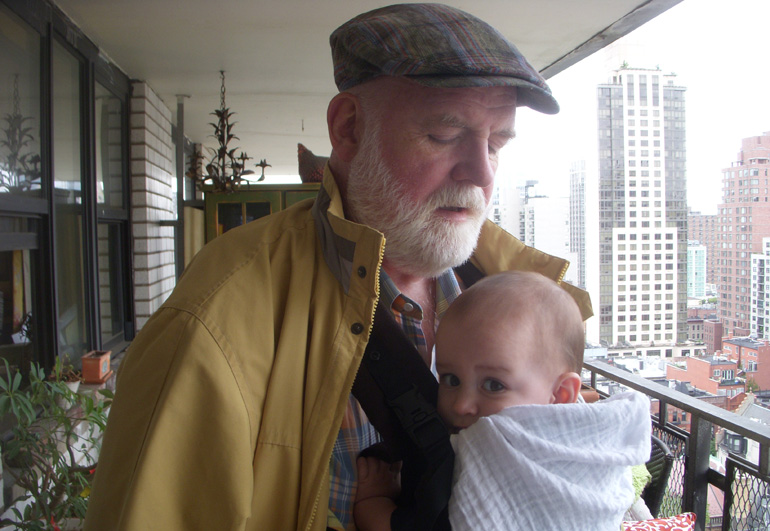Daily Office:
Tuesday, 31 August 2010
Tuesday, August 31st, 2010
¶ Much as we liked James Surowiecki’s column in this week’s New Yorker, “Are You Being Served?,” we wish that it were a tad more penetrating. Take the following incontestable observation:
For a start, most companies have a split personality when it comes to customers. On the one hand, C.E.O.s routinely describe service as essential to success, and they are well aware that, thanks to the Internet, bad service can now inflict far more damage than before; the old maxim was that someone who had a bad experience in your store would tell ten people, but these days it’s more like thousands or even, as in Carroll’s case, millions. On the other hand, customer service is a classic example of what businessmen call a “cost centerâ€â€”a division that piles up expenses without bringing in revenue—and most companies see it as tangential to their core business, something they have to do rather than something they want to do. Although some unhappy customers complain, most don’t—one study suggests that only six per cent of dissatisfied customers file a complaint—and it’s tricky to quantify the impact of good service. So when companies are looking for places to cut costs it’s easy to justify trimming service staff, or outsourcing. The recession has aggravated the problem, as companies have tried to cut whatever they could—the airlines, for instance, have trimmed payrolls by sixteen per cent since 2007—but even in more prosperous times there was a relentless emphasis on doing more with less. That’s how you end up with overworked flight attendants, neglected passengers, and collective misery.
It seems pretty clear to us that “most companies have a split personality when it comes to” human beings. And this is only natural: the modern company, boosted by the extraordinary leaps in productivity that were realized by the Industrial Revolution, has always sought to employ as few human beings as possible. It is for the machines to do the work; in an ideal world, machines can run the factory as well. And who were the customers of large companies? Other companies. It is difficult to imagine, but until the Second World War, the different kinds of mass produced goods intended for the general public could all be sold through a few catalogues and some not-very-large stores.
“The Consumer Society” has been, by and large, a nighmare for the modern company. And, in the everlasting fashion of modern companies, it has simply passed on the headache of that nightmare (the cost of doing business)Â to customers and employees alike.
¶ Anisse Gross begins her interview with the incredible kinetic sculptor Arthur Ganson with what might be the stickiest question that one could ask: what distinguishes Ganson’s constructions from amusing toys? Be sure sure to click through to The Rumpus and enjoy the YouTube clips of Ganson’s art.
The Rumpus: I was thinking about something Hegel wrote about truth and the way truth impresses itself upon our consciousness and that it can’t happen unless it’s through an emotive or sensory experience. I think that in your art there’s a deeply emotive place, and yet it walks a fine line, because some of your machines will have this tiny literal narrative but then it’s really just suggestive of this larger bigger mystery. How do you walk that line and prevent your work from just becoming just a visual pun?
Arthur Ganson: Well, I feel very rooted in wanting to make work that exists purely in the physical realm but I see the physical object as a kind of a conduit, and this whole question of truth and what’s true. I can’t prevent anything and I don’t want to try to, so to whatever degree someone were to look at anything and have the sense that it was for them a visual pun and if that’s where it resided then that’s the truth of it. And I feel very comfortable with any and all interpretations because I know that they are all personal. I think when we talk about the truth I feel that whatever that truth is it has to be personal. And there’s no right or wrongness to it. There can’t be a right or wrongness to it, because the object itself is both clear and ambiguous. I think that’s an interesting place, a catalyst, enough information to go from but not so much that it could define it. I think it really depends on any person’s capacity to dream. Because really it’s about dreaming.
(We think that it has something to do with his work’s blend of mechanical parts — cogs, rods, wheels, and so on — with more organic elements, such as the bentwood chair in Machine With Chair.
¶ At Baseline Scenario, guest Ilya Podolyako outlines the improvidence of relying, as the Dodd-Frank Act does, upon clearing houses to stabilize the market in derivatives. Don’t say you weren’t warned.
Herein lies the problem. A clearinghouse is a private business that puts its own money on the line. It works by ensuring that its members are actually well-capitalized institutions capable of paying for bets they made, and thus closely scrutinizes the risk profile of each participant’s portfolio on an ongoing basis. This access permits a clearinghouse to observe otherwise opaque OTC markets with great precision and provide valuable data on concentration, exposure, and capitalization to regulators. Meanwhile, under normal circumstances, the clearinghouse can neither borrow from the Federal Reserve nor receive government backing for its capital. So what could go wrong with using these organizations to grab control over derivatives?
Well, while in theory the model sounds good, history has demonstrated that private sector risk aggregators routinely underprice systemic, correlated risk. AIG provides the most startling example of this behavior. From 2005 to 2008, its Financial Products group essentially acted like a clearinghouse gone mad, willing to become the counterparty to nearly every bet by writing billions of dollars (in then-notional, subsequently real value) worth of credit default swaps without holding on to capital or hedging its reference product risk. A similar tendency to charge too little for catastrophic risk undermined the finances of MBIA (initially formed by a consortium of principal insurance companies in a structure reminiscent of the OCC) and AMBAC, the main monoline insurers, whose credit ratings were rapidly cut during the credit crisis. Fannie and Freddie are even better examples, because government housing policy exacerbated their natural tendency to underestimate the likelihood of fat-tail events and charge too little for their guarantees of conforming RMBSs.
 Tierce
¶ In case you’re bothered this evening by a grouch who believes that we’re all going to hell in a handbasket &c, you might consider passing on this bit of news: archeologists working in Turkey have discovered evidence of “successful” brain surgery (ie, it didn’t kill the patient) among reamins of a Bronze Age settlement. (New Scientist)
You have found what appear to be scalpels.
That’s right. We have just found two cutting blades made of obsidian, a volcanic glass that forms a sharp edge when it fractures. The obsidian must have been imported from another region as there is no natural source of it in the area. We found the blades next to a circular clay platform that may have been used for religious ceremonies. The blades are double-sided, about 4 centimetres long, and very, very sharp. They would still cut you today.
What makes you think they were used for surgery?
We have found traces of cuts on skulls in a nearby graveyard. Out of around 700 skulls, 14 have these marks. They could only have been cut with a very sharp tool. At this time, 4000 years ago or more, it could only have been an obsidian blade. The cut marks show that a blade was used to make a rectangular opening all the way through the skull. We know that patients lived at least two to three years after the surgery, because the skull has tried to close the wound.
No evidence of Bronze Age anesthetics is mentioned.
¶ Having mistaken Elif Batuman, author of the wildly popular lit crit romp, The Possessed, to be a person of the masculine gender, Ujala Sehgal, our favorite Millions intern, attempts to make amends. As penance, the author suggests that she buy the book.
At first I couldn’t find The Possessed in the Barnes and Noble on 6th Avenue where I sought it, but the salesperson at the information desk, his eyes lighting up in recognition, walked me purposefully to its spot.
“It’s pretty popular for a book on Russian literature,†he remarked good-naturedly.
“Well, she’s very funny,†I agreed, possibly with an excess of familiarity.
“Oh, do you know her?â€
“Well… you know… we’ve corresponded!†I trilled demurely, in a manner suggesting we’d been hand-writing deeply personal letters to each other for years and were practically the best of friends, instead of having emailed exactly once.
¶ Was anybody else surprised by the absence, from Steve Coll’s Pakistan piece in this week’s Talk of the Town, of the word “feudal“? It’s true that we’ve felt a bit wild throwing “feudal” around in our discussions of the broken rump of the Raj — or did, that is, until we read Sabrina Tavernise’s story in Saturday’s Times, “Upstarts Chip Away at Power of Pakistani Elite.”
In elite circles, Mr. Dasti is reviled as a thug, a small-time hustler with a fake college degree who represents the worst of Pakistan today. But here, he is hailed as a hero, living proof that in Pakistan, a poor man can get a seat at the rich men’s table.
Mr. Dasti’s rise is part of a broad shift in political power in Pakistan. For generations, politics took place in the parlors of a handful of rich families, a Westernized elite that owned large tracts of land and sometimes even the people who worked it. But Pakistan is urbanizing fast, and powerful forces of change are chipping away at the landed aristocracy, known in Pakistan as the feudal class.
The sooner American voters understand that our foreign policy has been propping up a “feudal class,” the sooner our foreign policy will make sense. (“Maybe yes, maybe no,” you counter; but you can’t profess a faith in democracy — American democracy in this case — without believing that it must be so.)
¶ At Good, Mark Peters laments the perverse misusage of the term “Orwellian” — “It’s as if we called criminal scum “Batmanistic†because Batman is so effective in beating them senseless” — but acknowledges that the pigs are out of the barn:
While I do think there is something sketchy about the many cries of Orwellianism, I believe there are three things that can be done about it: zip, nada, and diddly. Outrage at the watering down of “Orwellian†is not that different from other language peeves. For example, some folks cling to what was once the established meaning of “nauseous,†insisting that it can only mean something that causes the queasies. These quirky hardliners say it should never be used to describe a person who feels funny in the tummy, even though that sense has been common since the late 1800s, which hardly qualifies it as newfangled. More recently, look how this Jersey Shore doofus has basically ruined the word “situation,†or at least basted it with a mimbo-ish flavor. That’s the worst case of word abuse since Dubya ruined “Mission accomplished,†but these things happen.
Language change may make us nauseous, but complaining about it is as useless as a chimpanzee pundit saying chimps aren’t pant-hooting the way they used to, and that chimps these days don’t even know a pant from a hoot. Language evolves, and even the name of a great author isn’t safe.
Hopefully, Mr Peters’s piece will be read by all.
¶ It goes without saying that we had to read anything with a title as wrong-headed as this: “Urban Legends: Why suburbs, not cities, are the answer.” The further we got in Joel Kotkin’s piece, however, the righter it all seemed, provided that we understood it to be about the deleterious impact of unnecessarily large business organizations, not that of population densities. Cities don’t produce poverty. Mr Kotkin reverses his cause and its effect. (Foreign Policy: via Real Clear World)
Consider the environment. We tend to associate suburbia with carbon dioxide-producing sprawl and urban areas with sustainability and green living. But though it’s true that urban residents use less gas to get to work than their suburban or rural counterparts, when it comes to overall energy use the picture gets more complicated. Studies in Australia and Spain have found that when you factor in apartment common areas, second residences, consumption, and air travel, urban residents can easily use more energy than their less densely packed neighbors. Moreover, studies around the world — from Beijing and Rome to London and Vancouver — have found that packed concentrations of concrete, asphalt, steel, and glass produce what are known as “heat islands,” generating 6 to 10 degrees Celsius more heat than surrounding areas and extending as far as twice a city’s political boundaries.
When it comes to inequality, cities might even be the problem. In the West, the largest cities today also tend to suffer the most extreme polarization of incomes. In 1980, Manhattan ranked 17th among U.S. counties for income disparity; by 2007 it was first, with the top fifth of wage earners earning 52 times what the bottom fifth earned. In Toronto between 1970 and 2001, according to one recent study, middle-income neighborhoods shrank by half, dropping from two-thirds of the city to one-third, while poor districts more than doubled to 40 percent. By 2020, middle-class neighborhoods could fall to about 10 percent.
Cities often offer a raw deal for the working class, which ends up squeezed by a lethal combination of chronically high housing costs and chronically low opportunity in economies dominated by finance and other elite industries. Once the cost of living is factored in, more than half the children in inner London live in poverty, the highest level in Britain, according to a Greater London Authority study. More than 1 million Londoners were on public support in 2002, in a city of roughly 8 million.
¶ Ted Wilson, housesitting, kills the neighbors’ dog. (The Rumpus)
¶ Ask for directions and save thou$ands. (Good)
¶ Linda “Lovelace” declines to provide an autograph, but sort of does so, anyway. Good for her. (Letters of Note)







